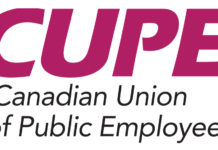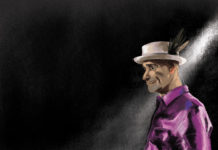University of Waterloo alumni Felicia Corrado and Allie Harrison hope to close the gap in support for youth brain injuries with Keep Your Head Up, a charity co-founded by the two.
Corrado and Harrison both sustained traumatic brain injuries in high school from sports, the effects from which they still experience today. Corrado described the difficulties the two faced in their recovery journey, labelling it an “uphill battle.”
“We felt like we couldn’t [and] didn’t find the right support that was able to help us navigate recovery,” Corrado said, explaining the number of doctors she saw and the loneliness stemming from the lack of proper support. “You have to take a step back from school or your sport or whatever it may be, and really advocate for yourself because again, it’s an invisible injury and only you know how you’re feeling.”
On average, in females aged 15-19, 17.5 per cent of sports and recreation-related injuries are concussions, with 92.8 per cent of traumatic brain injuries sustained during these activities being concussions, according to the Government of Canada.
The two leaned on each other for support throughout high school and into university, where Corrado studied public health and Harrison studied health studies. Corrado hoped to use her degree to work in relation to concussions and brain injuries.
“Allie and I met one day in a coffee shop and said, ‘Do you still want to do something?’ And she said, ‘Yes.’ And I said, ‘Yes.’ And so we ended up sitting there for like six hours. And Keep Your Head Up kind of came to life that day in a coffee shop uptown,” Corrado said.
Corrado and Harrison had already done volunteer work in the brain injury community and conducted a needs assessment, working with researchers, neurologists, different types of clinicians, and educators, to check if the gap they had experienced within the healthcare system and brain injury community was also present for others. They found that it was.
Corrado and Harrison co-founded Keep Your Head Up in 2020, and the charity now operates on a national level, running free virtual programs such as Mindful Moments, which provides youth with different coping strategies, and offers educational programs on a local level to increase awareness surrounding concussion recovery.
Corrado ascribes the gap in support to the siloed healthcare system, which prevents a proper flow of information, as well as the commonality of concussions. “It’s like, ‘Oh, [you have a] concussion you should be better in two weeks or whatever. And your challenges must not be hard,’” she said. “A concussion can be interchangeable with traumatic brain injury.” Corrado also pointed out that not all concussions are sports-related, a stigma still largely present around the injury.
The charity aims to focus on youth in the Waterloo region, bringing their education programs to local schools, sports teams, and anyone else hoping to learn how concussions and brain injuries can impact overall wellbeing. Corrado stressed the holistic impact concussions can have, stating, “It’s not just the physical side, which is often what people assume. It impacts your emotional…mental and physical [environments].”
Looking back on the charity’s growth, Corrado has some words of wisdom to offer other UW students looking to close any proverbial gaps of their own. “Don’t give up…people may step in your way and say, ‘This is silly.’…[but] there’s always going to be those people that don’t have faith,” she said.
Corrado also advised against giving in to fear of the unknown or doubt of one’s own abilities. “We have different things that you have to do within a charity. We wear multiple different hats, and we’re doing a lot of learning as we go…If you’re passionate about something, it’ll come easy because that’s what drives you.”































